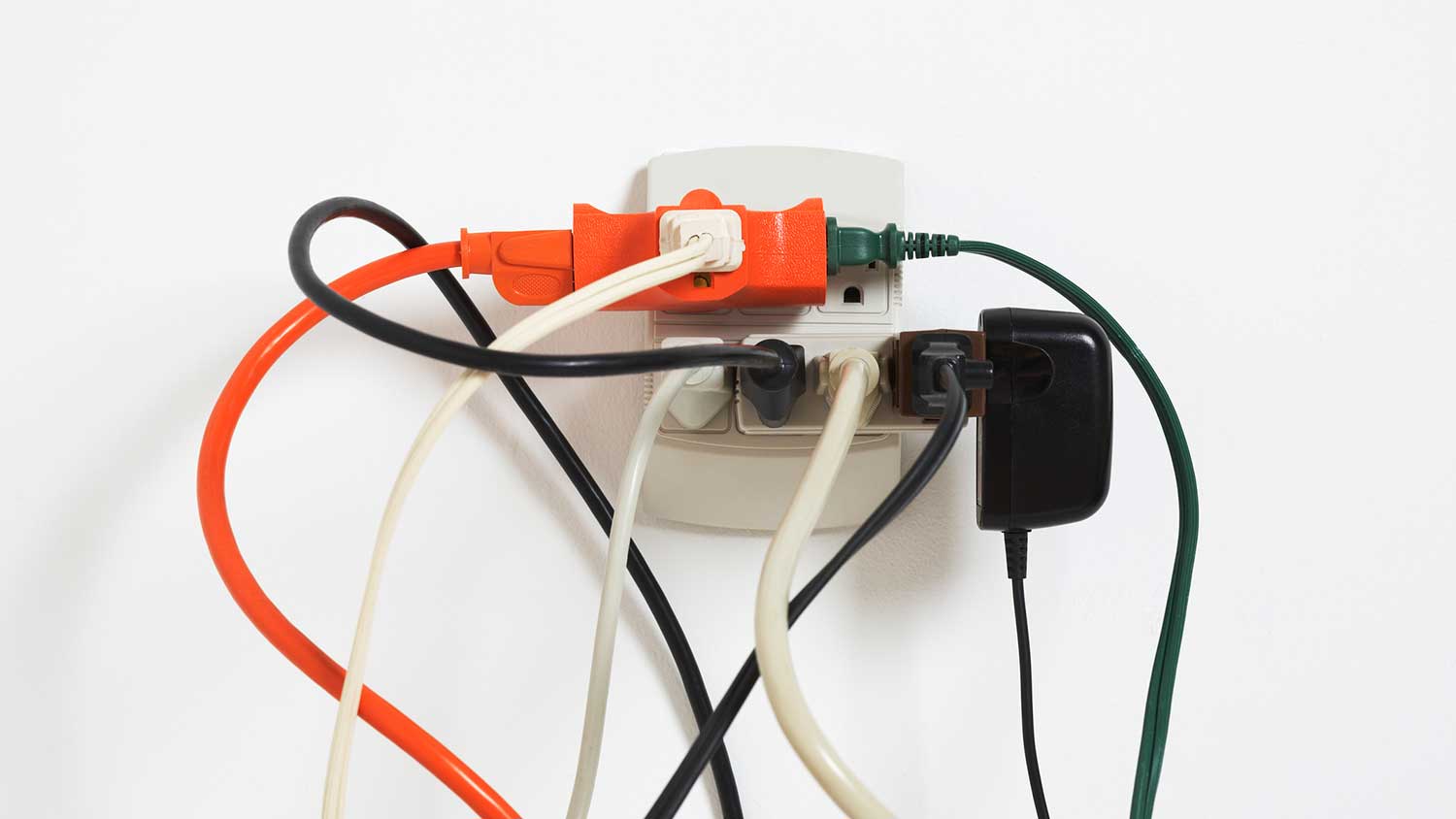
Before you hire a licensed electrical contractor, you should learn the cost to run electric from the road to your house so you can budget for the project.
They’re a sure sign that something is overheating


Burn marks on plug prongs can be caused by faulty wiring.
Corrosion inside an outlet can also cause burn marks on plug prongs.
It’s dangerous to use a plug that has burn marks.
You just grabbed your go-to phone charger or went to plug in your vacuum cleaner when you noticed scorch marks on the plug prongs. Should you be concerned? No matter what type of appliance or device it is, if you ever see burn marks on plug prongs, it's a red flag and should be addressed immediately.
It’s best to hire a professional electrician near you to determine the root of the problem and fix any electrical issues in your home. In the meantime, never plug something in that has burn marks, as this could cause a fire or other serious problems. Below, we break down the common causes of burn marks on plug prongs and the next steps to take.
One of the most common reasons for burn marks on plug prongs is arcing from loose connections. When wires in the outlet become loose and touch areas they aren't supposed to, it can cause arcing and overheating, which will also cause damage to the plug.
Arcing is a serious issue and a major cause of house fires. Check the outlet for signs of scorching or discoloration. If you see anything, call a professional electrician right away.

A circuit overload can also cause burn marks on plug prongs. A few things can cause a circuit to overload, such as too many high-voltage appliances plugged into an outlet, a device that requires more electricity than the circuit's capacity, or even a faulty appliance. Older homes may have out-of-date electrical systems and are more susceptible to overloading circuits.
When a circuit overloads, the wiring gets too hot. This can damage the insulation around the wires and even melt the outlet.
If you notice sparks when you plug in a device, smell burning plastic, or see burn marks on the outlet, you should have a professional electrician inspect and fix the issue immediately. Never plug other devices into an outlet that shows these signs.
If a plug or outlet feels hot to the touch, one of the most common reasons is faulty wiring. Improper wire installation, incorrect wire sizes, and worn-out wires are some examples of faulty wiring that can cause burn marks on plug prongs and outlets.
Faulty wiring is extremely hazardous, which is another reason why it's always a good idea to seek the assistance of an experienced electrician to fix the issue.
Outlets that have corrosion can cause burn marks on plug prongs as well. Exposure to moisture or water can cause rust and corrosion in the outlet; dust and debris can also cause corrosion.
As it builds up, corrosion will cause electrical resistance and make the outlet overheat. It can also cause arcing, which can lead to a short circuit in the outlet.
To protect against fires, you should replace an outlet immediately if it has corrosion. If you have electrical experience, you may be able to do it yourself, but working with electricity can be dangerous, so leave it to the professionals if there’s any doubt.

Sometimes, it’s the plug itself that’s damaged, which can cause a poor connection between the outlet and the plug. This results in an electrical arc and causes burn marks on plug prongs. Inspect the plug itself to see if the prongs are loose, bent, or damaged.
Also, check for cracks or wires showing. If there is any damage to the plug, then you should not use it. Have the plug repaired or get a new appliance instead.
From average costs to expert advice, get all the answers you need to get your job done.

Before you hire a licensed electrical contractor, you should learn the cost to run electric from the road to your house so you can budget for the project.

Rewiring a house can be a complex project but don’t let it catch you off guard. Read this to plan ahead and discover the cost to rewire a house.

The cost of a whole-house surge protector depends on the materials, size, installation, and more. This guide will help you budget for a new surge protector.

A dead outlet is more than an annoyance. It can be a fire hazard, too. Here’s how to deal with a dead outlet to keep your home safe and prevent fire.

If your plugs are sliding out halfway after you insert them into the outlet, this is a fire hazard. Learn how to fix loose outlets in your home.

Different types of switches can go beyond the basics of controlling lights. Learn the key differences between a single-pole vs. double-pole switch.